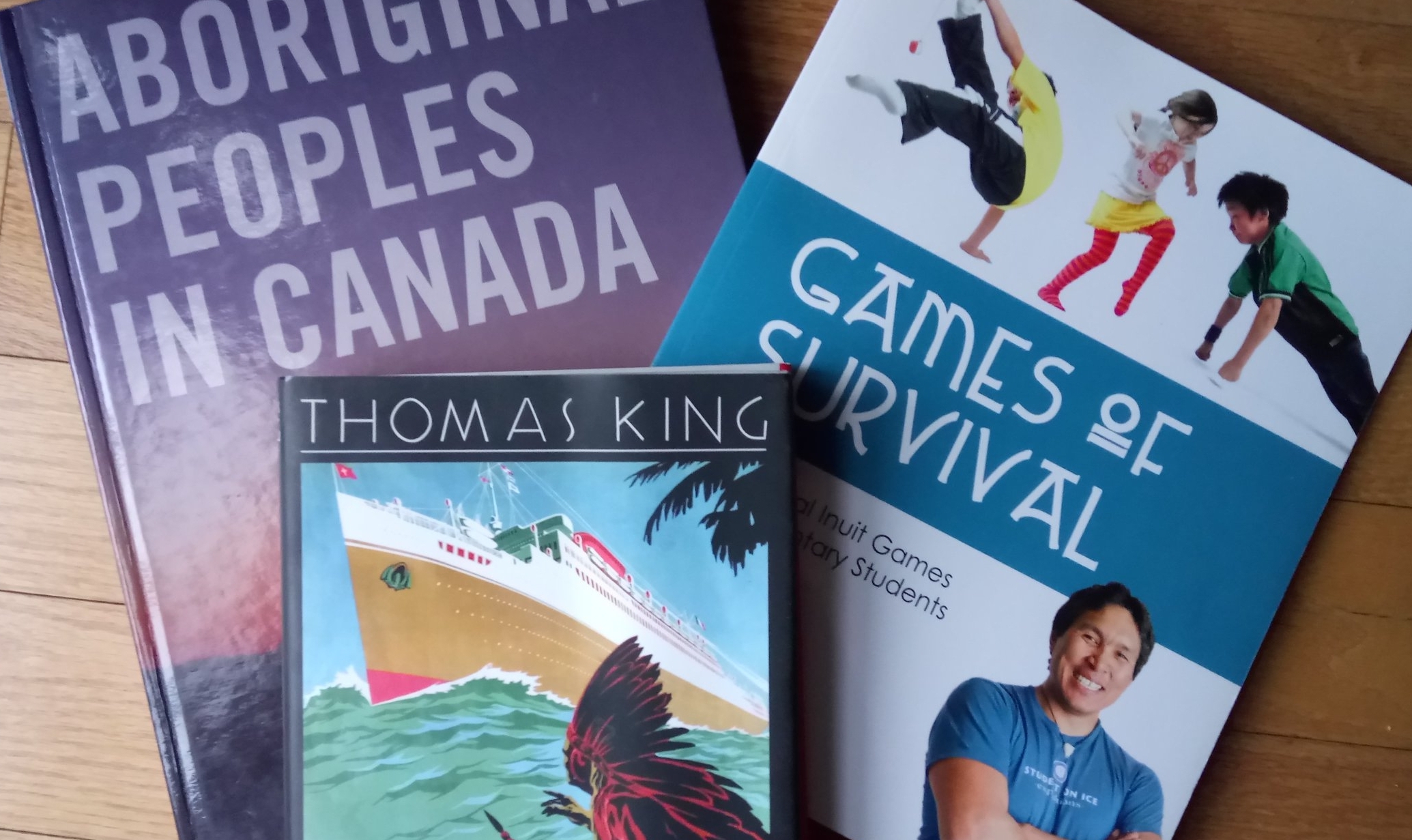Are you an educator in the Toronto District School Board? Did you know that there are Anishinaabemowin classes available to all TDSB Virtual School students at the high school level which can be counted towards the mandatory language credit?
Help spread the word about:
- LNOAO1 (grade 9, Ojibwe)
- LNOBO1 (grade 10 Ojibwe)
- LNOCO1 (grade 11, Ojibwe)
These courses are taught by Lena Recollet who advocated for them to be included in the Virtual School and is now advocating to increase their enrollment.
You do not need to be Indigenous to take these courses.
Upcoming Webinar! Traditional Indigenous Mathematics in the Ontario Classroom
Dr. Jean-Paul Restoule and I are excited to partner with The Robertson Program for Inquiry-based Teaching in Mathematics in Science for a new webinar series which begins on February 25th at 7pm (EST). Tickets are free and everyone is welcome.
About our first guest
Bryan Bellefeuille is a father of three and is Anishinaabe of Nipissing First Nation. He is a firekeeper, a grass dancer, and a traditional fisherman. Bryan graduated from the Schulich School of Education at Nipissing University after completing an undergraduate degree in Mathematics. Currently, Bryan is teaching at Blind River Public School on the North Shore of Lake Huron as an Ojibwe language teacher and an Indigenous Culture and Curriculum Support worker, where he works with teachers to integrate Indigenous knowledge into other parts of the curriculum.
Webinar Description
Traditional Indigenous Mathematics has existed for thousands of years. Stories and knowledge continue to be held and practiced by families everywhere. Difficulties arise when articulating Traditional Mathematics in a Western context. Traditional Indigenous activities have not been passed down with descriptions of how it is connected to the expectations laid out in the Ontario curriculum. For Traditional Knowledge to be taught in Mathematics, it takes time to be able to understand how individual traditional activities contain vast information.
In this webinar, Bryan will share examples of how he brings Traditional Mathematics in the Ontario Classroom.
Click here to sign up to sign up for Traditional Indigenous Mathematics in the Ontario Classroom!
New Webinar Alert! Welcome to our partnership with The Robertson Program
UPDATE: This Webinar has been postponed! Check this space for more details to come!
Since the Summer Dr. Restoule and I have put a pause on Kikinoo’amaadawin Webinar series - but we are back next week with a new offering focused on STEM.
For this four part series, we have partnered with The Robertson Program for Inquiry-based Teaching in Math and Science - OISE to bring you a series of four FREE webinars on STEM and Indigenous Education!
Our first webinar is January 20th at 7pm EST, featuring Marlo Beaucage and Nancy O'Donnell both members of Red Rock Indian Band. They will be speaking about Learning from Land.
The webinar will focus on how Indigenous land-based teachings, when carried out in collaboration with community Elders or Knowledge Keepers, can provide rich learning experiences for Indigenous and non-Indigenous students. Educators in this session will be provided with ideas and connections in mathematics and science using Indigenous land-based experiences, all the while connecting to the current curriculum.
Check out the eventbrite page here to learn more and sign up for your free ticket!
Analyzing an Orange Shirt Day Tweet from the RCMP
Orange Shirt Day was yesterday, and it was amazing to see educators recognizing the day, raising awareness about the horrible conditions that children faced in Residential Schools, and taking action for Indigenous children today.
Here is one example I saw:
Nancy Steinhauer, principal of the Mabin School in Toronto, shared this lesson about how to use Orange Shirt Day to move towards advocacy and action.
I appreciate how the SK teacher here connected Orange Shirt Day with the present injustices against Indigenous children, specifically the Federal Government's inequitable funding practices and the horrible conditions many Indigenous children are still asked to attend school in.
I noticed yesterday that Orange Shirt Day is now so well known that many institutions, governments, and organizations make statements in support of the day.
This tweet below issued by the RCMP provides a perfect opportunity to engage in critical analysis about such statements with your students.
Perhaps you might notice as I and many others have that the words "sent away" are doing a lot of work here.
Here are some questions I have about this Tweet:
1. How did Indigenous children come to arrive at Residential Schools?
2. What compelled them to attend?
3. What was the role of the RCMP in this process?
4. What conversation needs to be started? Where else are those conversations already being held?
5. How is the use of the passive voice in this Tweet operating?
Also:
What is preformative or optical allyship and how do we know when we, someone else, or an organization is engaging in it?
As a final comment, I will leave you with an image from Prince Edward Island newspaper The Guardian in July 2018 of Cree artist Kent Monkman standing in front of his painting, "The Scream".
Being Italian on Turtle Island
Everyone is welcome to join me on Tuesday October 6th at 7 to 8:30pm for "Being Italian on Turtle Island", an online workshop hosted by Italian Canadians for Black Lives.
Here are the central questions that I will be diving into
How do we understand our Italian-Canadian identities in relationship to the colonization of Turtle Island?
How do historical Italian figures like John Cabot and Christopher Columbus factor into this story?
How might we transform our relationships with Indigenous peoples and uphold our end of the Nation-to-Nation relationship?
Registration is free and if you can't make it, sign up anyway to receive the recording after! Click here to save your spot!




